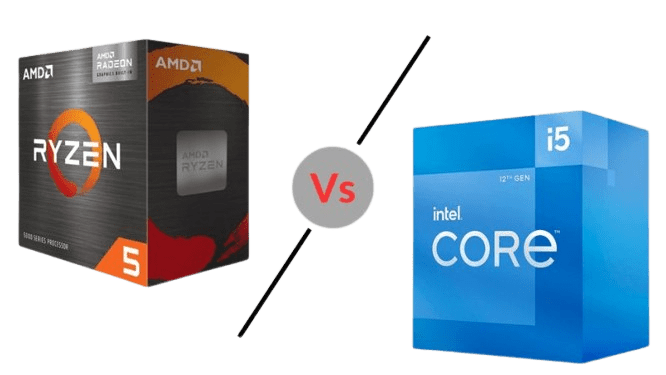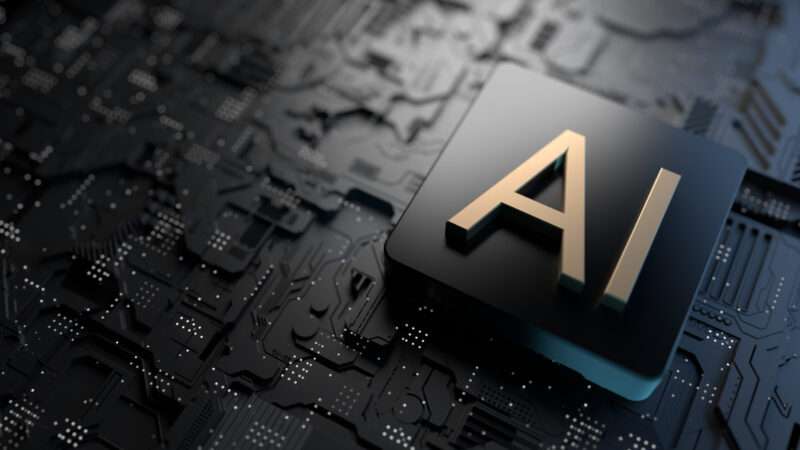What Are the Differences Between an Intel Core i5 and an AMD Ryzen CPU? Which One Performs Better in 2024?
What Are the Differences Between an Intel Core i5 and an AMD Ryzen CPU? Which One Performs Better in 2024? Introduction Importance of choosing the right CPU The dominance of Intel and AMD in the market Overview of Intel Core i5 and AMD Ryzen CPUs Brief History of Intel Core i5 and AMD Ryzen Evolution of Intel’s Core i5 series AMD’s Ryzen comeback Architecture and Design Differences Intel Core i5 architecture in 2024 AMD Ryzen architecture in 2024 Impact of architecture on performance Performance Comparison Multithreaded performance: Intel i5 vs. Ryzen Single-core performance: Which performs better in daily tasks? Gaming performance comparison Power Efficiency and Thermal Management Intel Core i5 power consumption and heat management AMD Ryzen efficiency in 2024 Which CPU is more energy efficient? Integrated Graphics: Intel vs. AMD Intel’s integrated graphics performance in 2024 AMD’s Vega/Zen series integrated graphics Best choice for integrated graphics Overclocking Potential Intel i5 overclocking in 2024 AMD Ryzen overclocking capabilities Pros and cons of overclocking each CPU Motherboard and Socket Compatibility Intel’s LGA sockets and motherboard compatibility AMD’s AM5 and AM4 sockets Cost and flexibility of upgrading Price Comparison Price range of Intel Core i5 models AMD Ryzen pricing in 2024 Value for money: Which offers more bang for your buck? Productivity Tasks: Content Creation, Video Editing, and More Intel Core i5 in productivity tasks How AMD Ryzen performs in content creation Which one is better for heavy workloads? Gaming: Frame Rates and Smoothness Intel Core i5 gaming benchmarks in 2024 AMD Ryzen gaming performance: Is Ryzen catching up? Which CPU handles modern AAA games better? Artificial Intelligence and Machine Learning Performance Intel vs. AMD for AI workloads in 2024 Which CPU is more suited for AI and ML applications? Future-Proofing: Which CPU is More Durable? Intel’s long-term software support AMD’s approach to future-proofing Which CPU will remain relevant for longer? Customer Support and Ecosystem Intel’s customer support and driver updates AMD’s community and support in 2024 Conclusion Summary of key differences Which CPU is better for different use cases? Final recommendation FAQs Is Intel Core i5 better for gaming than AMD Ryzen? Which CPU offers better value for money? How does power consumption compare between Intel i5 and Ryzen? Can I overclock an Intel i5 or Ryzen CPU? What are the best budget CPUs in 2024? What Are the Differences Between an Intel Core i5 and an AMD Ryzen CPU? Which One Performs Better in 2024? When you’re building or upgrading a PC, choosing the right CPU is crucial. It’s the brain of your system, and the decision you make will significantly impact your computer’s performance, whether you’re gaming, editing videos, or multitasking. In 2024, the competition between Intel Core i5 and AMD Ryzen CPUs is as fierce as ever, but which one performs better? Let’s dive into the key differences and performance aspects of both CPUs to help you make an informed choice. Brief History of Intel Core i5 and AMD Ryzen Intel has long been a dominant player in the CPU market. The Core i5 series has been around for over a decade, known for offering a great balance of performance and affordability. AMD, on the other hand, made a significant comeback with its Ryzen series, which debuted in 2017. Ryzen shook the market by providing more cores and threads at competitive prices, giving Intel its first real competition in years. In 2024, both Intel and AMD have continued to evolve, with Intel’s 14th-gen Core i5 and AMD’s Ryzen 7000 series leading the mid-tier market. But how do these two giants compare today? Architecture and Design Differences Architecture plays a critical role in determining a CPU’s efficiency and performance. Intel’s latest Core i5 processors in 2024 are built on the Intel 7 (10nm) process, featuring hybrid architecture. This design mixes high-performance cores (P-cores) with efficiency cores (E-cores) to balance workloads and optimize multitasking. AMD’s Ryzen 7000 series, however, utilizes TSMC’s 5nm process and is based on the Zen 4 architecture. AMD’s approach focuses on raw multi-core performance, offering more cores per dollar than Intel. Impact on performance: While Intel’s hybrid design excels in mixed workloads and offers superior single-core performance, AMD’s Zen 4 processors dominate in multi-threaded tasks, such as rendering or compiling code. Performance Comparison Multithreaded Performance: Intel i5 vs. Ryzen In 2024, AMD continues to hold the crown for multithreaded performance. With higher core and thread counts, Ryzen processors like the Ryzen 5 7600X outperform Intel’s Core i5-13600K in heavy multitasking environments like video editing, 3D rendering, and software development. Single-Core Performance: Which Performs Better in Daily Tasks? However, for tasks that rely on single-core performance, such as opening applications, browsing, or light gaming, Intel’s Core i5 pulls ahead. Intel’s focus on boosting clock speeds and improving single-threaded efficiency ensures snappier performance in day-to-day tasks. Gaming Performance Comparison When it comes to gaming, both Intel and AMD perform exceptionally well, but with some differences. Intel’s Core i5 typically has a slight edge in games that rely on higher clock speeds and single-core performance. However, AMD’s Ryzen CPUs, especially when paired with high-end GPUs, can match or even surpass Intel in certain games that utilize more threads. Power Efficiency and Thermal Management Power efficiency is an important factor, especially for those looking to build quieter, cooler systems. Intel’s Core i5 processors, thanks to their hybrid architecture, tend to be more power-efficient in lighter workloads by switching to the E-cores. However, during intensive tasks, they can draw more power and generate more heat. AMD Ryzen CPUs, particularly the Ryzen 5 7600X, tend to maintain lower power consumption across the board due to their smaller 5nm architecture. AMD’s focus on efficiency makes their CPUs a great choice for those looking to reduce energy costs. Integrated Graphics: Intel vs. AMD In 2024, integrated graphics have become more relevant, particularly for users who don’t want to invest in a dedicated GPU. Intel’s Iris Xe integrated graphics in the Core i5 series are powerful enough for light gaming and general productivity





